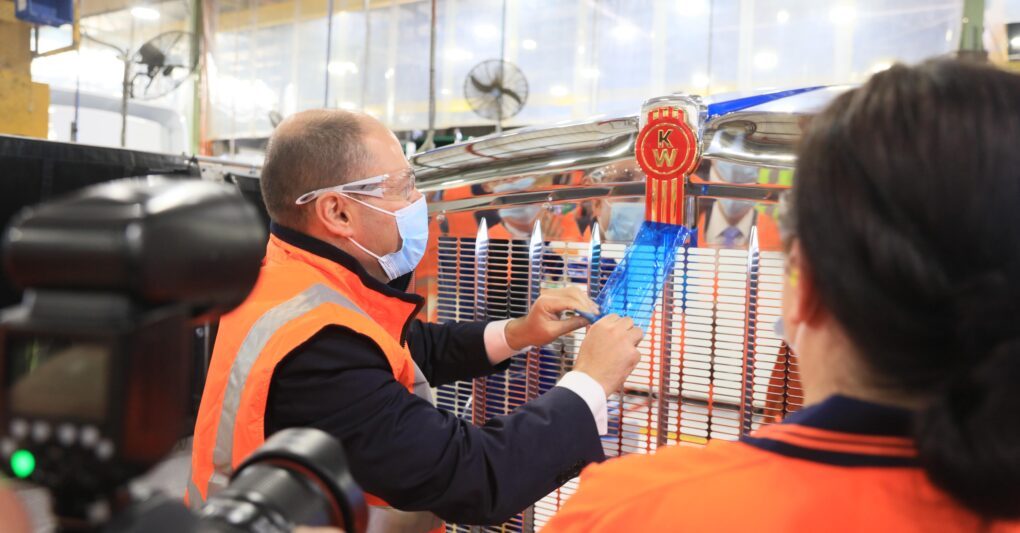Paccar celebrates 50 years of Australian manufacturing

On 2 March 1971 the first Australian made Kenworth truck rolled off the production line at Bayswater, Victoria.
Fifty years, 60 models and more than 70,000 trucks later, employees recently celebrated that history-making day with government officials, dealer principals, industry partners, and suppliers.
As part of the celebrations, Treasurer Josh Frydenberg; Assistant Treasurer Michael Sukkar; Assistant Minister for Road Safety and Freight Transport, Scott Buchholz; and Assistant Minister to the Deputy Prime Minister, Kevin Hogan, toured the facility before celebrating with staff the role PACCAR has played in both the trucking and manufacturing industries during the last 50 years.
Speaking at the anniversary celebration, PACCAR Australia managing director, Andrew Hadjikakou, paid tribute to the foresight of those that first brought Kenworth to this country, and those responsible for establishing the Bayswater plant. Describing its development as a defining moment for the Australian road transport industry.
“We are extremely proud of this achievement and honoured that the Treasurer and his colleagues have joined us to show their support for our industry and for PACCAR,” remarked Hadjikakou.
The company‘s success has been underpinned throughout by an unwavering commitment to the manufacturing of quality trucks designed specifically for Australian conditions.
“Today, the workforce behind each truck is measured in the thousands. An extended family of exceptional employees, dealers and suppliers that span the nation,” Hadjikakou explained.
“Not everything has changed though. Each Kenworth is still specifically application engineered for its intended task and the desire to build the world‘s best trucks still inspires and unites us.”
By fostering a culture of innovation and investing heavily in next generation technologies, Kenworth has risen to every challenge over the 50-year journey. From the removal of import tariffs, soaring fuel costs, economic downturns, global recessions, dimensional changes, emission reductions, and most recently, a pandemic demanding changes to the production line to protect the workforce and maintain supply of trucks to the essential transport industry.
“2020 showed how important Australian manufacturing is to this country,” said Hadjikakou.





